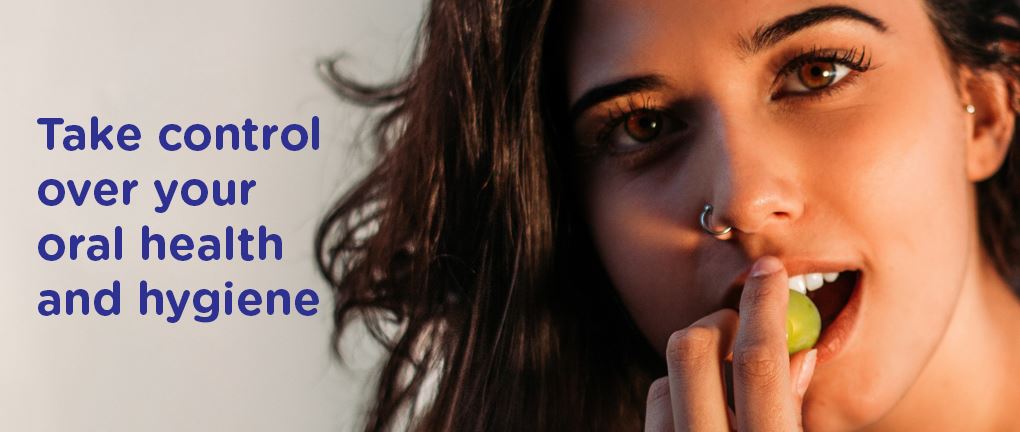Take control over your oral health and hygiene

We believe oral health is fundamental for lifelong well-being and in order to help you achieve this we aim to put you in control of your oral health.
Regular hygienist visits and check-ups with your dentist are essential, but there are a few things you can do at home to minimise dental erosion and tooth wear.
Tooth wear is common and something we all experience over the course of our lives. As we get older, we experience a slight discolouration and the enamel naturally wears away. Let us explain:
Tooth wear: What is it?
Tooth wear is an umbrella term used for 3 types of dental erosion:
- Dental erosion: Is caused by the environment in your mouth, in particular an overly acidic environment.
- Abrasion: Caused by external influences such as incorrect brushing techniques
- Attrition: Dental erosion caused by internal problems such as teeth grinding.
For the purpose of giving you control over what you can do at home, we will focus on dental erosion. Please talk to your dentist or hygienist for information on abrasion and attrition.
Dental erosion
What causes an acidic environment?
An acidic environment is caused by any foods and drinks with high sugar content and an acidic base. This includes things such as fizzy drinks, acidic foods and sweet foods. Citrus fruit, fruit juices, alcohol and wine, coffee, apple cider vinegar, and candy are all foods to be aware of.
Additionally, there are some medical conditions that can influence the environment in your mouth, in particular those causing you to vomit excessively (eg. eating disorders), digestive issues (eg. GERDS) and dry mouth/low saliva flow.
Medications that can create an acidic environment: aspirin, antihistamines, vitamin c, iron supplements and antibacterial mouthwashes.
What happens when the environment turns acidic?
An acidic environment causes your enamel (the protective layer over your tooth) to get soft and therefore makes the rest of your tooth more prone to breaking down, this is called an acidic shock.
Apart from avoiding those foods and drinks as much as possible there are a few other things you can do.
What you can do at home
That’s a lot to take in but you can do some fairly simple things to avoid it:
- Brush twice a day, floss once a day
- Rinse your mouth after indulging in anything that might cause acidic shock to neutralize your mouth environment.
- Drink more water
- Use a straw to drink acidic drinks, this will push the liquid to the back of your mouth rather than past your teeth
- Don’t brush your teeth straight after having an acidic shock, wait an hour
- Avoid snacking between meals. Acidic shock stays around for a few hours after a meal and snacking in that time will increase the chance of dental erosion.
- Increase saliva flow after meals. Use sugar-free gum to increase flow, this will help neutralize the environment.
All in all, it's about finding a happy middle ground to ensure you are looking after your teeth and knowing what to do to protect your teeth. Improving your oral health is a significant contribution to a healthier body, a healthier life.




